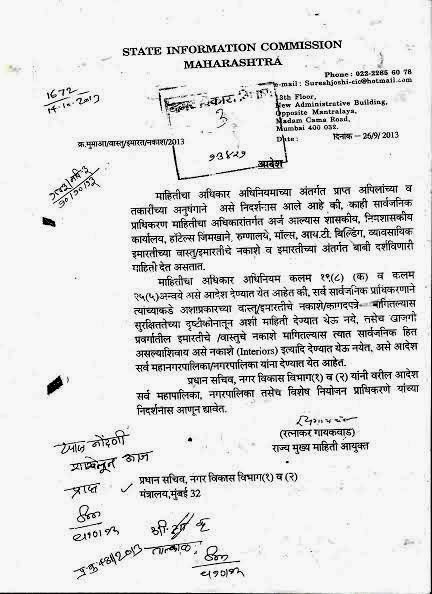It seems that after finding entire ministry of Maharashtra involved in corruption Anti Corruption Bureau (ACB) has taken lenient stand on disclosing Identities of culprits. Initially ACB removed list of persons against whom it had asked for permission of open Inquiry. After inquiry from media persons ACB once again uploaded the list but without designations and clear names of culprits, so that their identity should not be revealed easily.
There are several cases pending
in mantralay of Maharashtra in which ACB has sought permission for open inquiry.
After receiving complaints against any public servant for alleged corruption,
benami properties, misappropriation of funds etc., ACB first conducts discreet
inquiry and if found complaint is true then it goes for open inquiry and for
open inquiry it has to seek government’s permission. However as the persons
involved in such case are always high profile bureaucrats and ministers
government always reluctant to give such permission. ACB is waiting for permission
in several such cases .
If we look at the list of
ministries involved from whom ACB has sought permission, one can easily say
that entire ministry of Maharashtra is involved in it. It seems that’s why ACB has
taken lenient stand on disclosing Identities of culprits. Initially ACB removed
list of persons against whom it had asked for permission of open Inquiry. After
inquiry from media persons ACB once again uploaded the list but without
designations and clear names of culprits, so that their identity should not be
revealed easily. This list is available here. And the earlier list is
reproduced below. What does it show?
As per rules after complaint is received
ACB has to complete entire inquiry in six months, however as the persons
involved in such cases are always high profile bureaucrats and ministers government
is always reluctant to give such permission. In other words it can be said that
that government doesn’t give such permission because it has tacit consent to
such acts , hence request for permission
of inquiry remains ending months together or denied , and culprits pretend as
if nothing had happened.


















